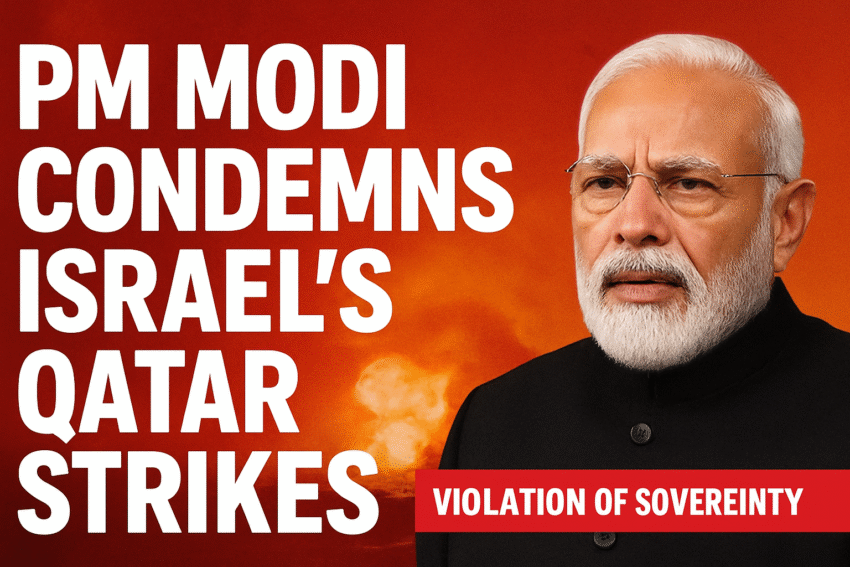New Delhi, September 11 – Prime Minister Narendra Modi strongly condemned Israel’s recent airstrikes in Doha, Qatar, during a phone call with Qatar’s Emir, Sheikh Tamim bin Hamad Al Thani, describing the attack as a grave violation of sovereignty.
The airstrikes, which Israel said were aimed at targeting Hamas leaders allegedly operating from abroad, sent shockwaves across the region, raising fears of widening instability beyond Gaza. Qatar, known for hosting Hamas political figures and mediating ceasefire efforts in past conflicts, has become an unexpected flashpoint.
Modi Expresses Solidarity with Qatar
In his conversation with the Emir, PM Modi reaffirmed India’s support for Qatar’s territorial integrity, calling the strikes “deeply concerning and unacceptable.” He stressed that unilateral actions threatening sovereignty and international law undermine global peace.
According to officials, the Prime Minister emphasized that diplomacy and dialogue are the only sustainable paths forward, urging both Israel and Hamas to step back from escalating violence.
Qatar Denounces Attack
The Qatari Emir expressed outrage, labeling the strikes as an “unprovoked act of aggression.” He thanked India for its support and noted that Doha will raise the issue in the United Nations Security Council, where it plans to push for international condemnation of Israel’s action.
Israel’s Justification
The Israel Defense Forces (IDF) defended the strikes, claiming they were targeting “terrorist command centers” linked to Hamas leaders who were allegedly directing operations outside Gaza. Israeli officials argued that Qatar had become a safe haven for Hamas’ political leadership.
Regional Reactions
- Iran condemned the attack, calling it proof of “Israel’s disregard for international law.”
- United States expressed concern, urging restraint on all sides, though refrained from directly criticizing Israel.
- Arab League issued a statement accusing Israel of destabilizing the Gulf region.
India’s Balancing Act
India’s response highlights its delicate diplomatic balancing in the Middle East. While maintaining close ties with Israel in defense and technology, New Delhi also shares historic cultural, economic, and energy ties with the Gulf states. Millions of Indian workers reside in Qatar, making stability in the region a top priority for India’s foreign policy.
By framing the strike as a “violation of sovereignty,” PM Modi has positioned India as a defender of international law, while carefully avoiding taking sides in the Israel-Hamas conflict itself.
What’s Next
- UN Discussions: Qatar’s push at the UN Security Council could increase pressure on Israel diplomatically.
- India’s Role: Analysts suggest India may play a quiet mediating role given its strong relations with both sides.
- Regional Stability: If the strikes continue, Gulf states could harden their stance against Israel, complicating wider peace talks.

